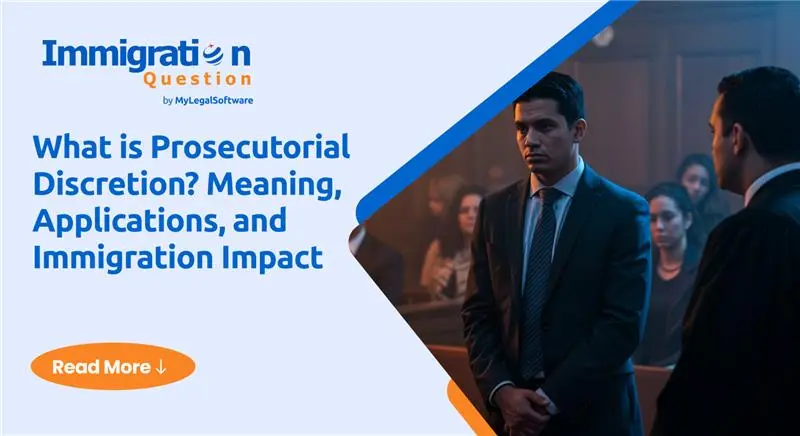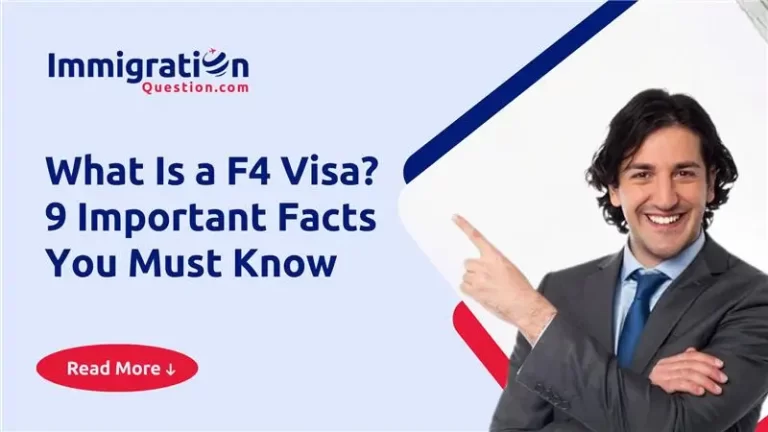Prosecutorial discretion is a powerful tool in the legal system that allows government attorneys to decide how, when, or if to pursue a case. In the immigration context, this concept is especially important because it can mean the difference between deportation and the chance to stay in the United States.
Understanding prosecutorial discretion is essential for individuals navigating immigration proceedings, as it offers a potential path to delay or even stop removal from the U.S. entirely.
In this blog, we’ll explore the definition of prosecutorial discretion, how it works in both the immigration and criminal justice systems, the factors that influence these decisions, and how you can potentially benefit from it.
What is Prosecutorial Discretion?
Prosecutorial discretion is the authority of law enforcement or government attorneys to decide whether to pursue legal action against an individual. In immigration law, this means that agencies such as ICE (Immigration and Customs Enforcement) or USCIS (U.S. Citizenship and Immigration Services) can choose to take or refrain from taking enforcement action.
Unlike judicial decisions, prosecutorial discretion is exercised by the executive branch. It differs from other legal discretion in that it’s not about interpreting laws—it’s about deciding whether to apply them in specific cases.
For example, in immigration, a person may violate of the law but not be targeted for removal due to limited resources or humanitarian factors. In criminal law, discretion in the criminal justice system can lead to reduced charges, plea bargains, or decisions not to prosecute at all.
How Prosecutorial Discretion Works in Immigration
In immigration contexts, prosecutorial discretion can take several forms:
- Decisions Not to Initiate Proceedings: Immigration authorities may choose not to place someone in removal proceedings despite having legal grounds to do so. This might happen for humanitarian reasons or because the case doesn’t align with current enforcement priorities.
- Administrative Closure: Officials may temporarily remove cases from the active court docket, essentially putting them on hold indefinitely.
- Deferred Action: This form of discretion temporarily shields individuals from deportation and sometimes provides work authorization. DACA (Deferred Action for Childhood Arrivals) is perhaps the most well-known example.
- Stays of Removal: Even after a removal order has been issued, ICE can decide not to execute it, allowing the person to remain in the U.S. temporarily.
- Priority Enforcement: Agencies establish guidelines about which categories of cases to prioritize, effectively deprioritizing others.
The exercise of prosecutorial discretion in immigration cases can happen at any stage—from initial encounters with immigration officials to moments before deportation.
Discretion in the Criminal Justice System
In the criminal justice system, prosecutorial discretion is critical in managing caseloads and delivering justice. Prosecutors have the authority to:
- Decide whether to charge someone with a crime
- Choose which charges to file
- Offer plea bargains or reduced sentencing
- Dismiss cases when there’s insufficient evidence or public interest concerns
These decisions are influenced by factors such as evidence strength, the defendant’s criminal history, resource limitations, and public interest considerations. For instance, a prosecutor might decline to charge someone for a minor first offense or reduce charges in exchange for community service.
Factors Considered in Exercising Prosecutorial Discretion
Whether in immigration or criminal law, several factors influence the use of prosecutorial discretion:
- Humanitarian Concerns: Family ties in the U.S. (especially to U.S. citizens), serious medical conditions, or caretaking responsibilities often influence decisions.
- Length of Residence: Longtime residents who have built lives in the U.S. may receive more favorable consideration than recent arrivals.
- Community Contributions: Military service, community involvement, and other positive contributions to society often factor into discretionary decisions.
- Criminal History: Those with serious criminal convictions typically face greater challenges in receiving favorable discretion than those without records.
- Resource Allocation: Officials consider whether pursuing a particular case is the best use of limited government resources.
- Policy Directives: Each administration issues guidance about enforcement priorities, which shapes discretionary decisions throughout the system.
Understanding these factors can help individuals and their attorneys craft stronger requests for favorable exercises of discretion.
Pros and Cons of Prosecutorial Discretion
Like any powerful legal tool, prosecutorial discretion has both advantages and drawbacks:
Pros:
- Provides flexibility to address unique circumstances
- Allows limited resources to focus on high-priority cases
- Creates space for humanitarian considerations
- Enables adjustments to changing social and political realities
Cons:
- Can lead to inconsistent application across different regions or officials
- Often lacks transparency in how decisions are made
- Changes significantly between administrations, creating uncertainty
- May be influenced by implicit bias or political pressure
How to Request or Benefit from Prosecutorial Discretion
While there’s no formal application process for prosecutorial discretion, here are the things you can do:
- Identify the appropriate authority: Determine which agency has jurisdiction over your case
- Gather supporting documentation: Collect evidence of positive factors in your case (community ties, family relationships, hardship evidence)
- Submit a formal request: Often through your attorney, outlining why your case warrants favorable discretion
- Follow up appropriately: Maintain communication through your attorney
Working with an experienced immigration attorney significantly improves your chances of receiving favorable discretion, as they understand how to frame requests effectively and navigate the system.
Final Thoughts
Prosecutorial discretion in criminal and immigration law, allows government agencies to prioritize resources and make individualized decisions. For immigrants, it can mean the opportunity to remain in the U.S. legally while their case is on hold or dismissed entirely.
Understanding this concept and how to request it could dramatically affect your future. If you or a loved one are in immigration proceedings, don’t face it alone. Visit Immigration Question, a free open forum where you can have an attorney answer your question. We also connect you with an experienced immigration attorney who can evaluate your situation and develop strategies tailored to your circumstances.
Frequently Asked Questions
Can prosecutorial discretion stop a deportation?
Yes, immigration officials can issue stays of removal or administratively close cases to temporarily stop deportation. However, this relief is discretionary and can be reversed under new policies or changed circumstances.
Who qualifies for prosecutorial discretion in immigration cases?
There are no fixed eligibility requirements as decisions depend on individual circumstances and current enforcement priorities. Favorable factors include family ties to U.S. citizens, long U.S. residence, and lack of criminal history.
Is prosecutorial discretion permanent or temporary?
Prosecutorial discretion is always temporary and can be reversed by the same agency, a new administration, or when circumstances change. It doesn’t create permanent rights and may require periodic renewal.
Can prosecutorial discretion lead to permanent legal status?
Prosecutorial discretion itself doesn’t provide a pathway to permanent residency. However, it can give individuals time to pursue other legal remedies while temporarily avoiding deportation.











